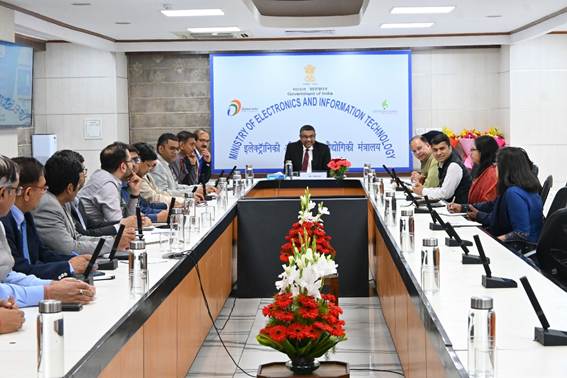As Catholic cardinals meet to choose a new pope, they will face a big question: Is it time, after three consecutive non-Italian pontiffs, to give the papacy back to the nation that held it for most of the 2,000-year history of the Roman Catholic Church?
For 455 years between the death of Dutchman Adrian VI in 1523 and the election of Poland’s John Paul II in 1978, the Italians had total control of the papacy. In all, roughly 80% of the Church’s 266 popes have been Italian.
But John Paul was succeeded by a German, Pope Benedict, who then gave way to Pope Francis — an Argentine and the first pontiff from the Americas.
Following Francis’ death on April 21, cardinals will start their conclave next week to pick a new head of the 1.4-billion-member Church. Among the leading contenders is Italian Cardinal Pietro Parolin, who served as the Vatican’s number-two official for most of Francis’ 12-year papacy.
A veteran diplomat, Parolin has served in Vatican embassies across the world, and speaks English, French, and Spanish fluently, besides his native Italian, which is the working language inside the tiny Holy See state.
Prelates taking part in the closed-door discussions are also mentioning at least two other possible Italian candidates in quiet conversations outside their meeting hall.
There is Cardinal Matteo Zuppi, the archbishop of Bologna in northern Italy, and Cardinal Pierbattista Pizzaballa, the leading Catholic official in Jerusalem.
This means the voting bloc of 19 Italian cardinals may be split among several choices. An expected 133 prelates will elect the next pope at the conclave, which starts on May 7.
Alberto Melloni, a Church historian at the University of Modena-Reggio Emilia who has studied past conclaves closely, said history may be repeating itself. In the past three conclaves – held in 1978, 2005 and 2013 – the Italian cardinals did not coalesce around a single candidate.
“The Italians are the ones who decided, by dividing up amongst themselves, that there would not be Italian popes,” said Melloni. “They know each other well and are less willing to compromise, which makes other cardinals feel they are inadequate (for the job).”
It is considered bad form for individual prelates to publicly campaign for the papacy. In media interviews, many of the Italian cardinals are deflecting questions about whether one of their number could reclaim the papacy.
Cardinal Angelo Bagnasco, a retired president of the Italian bishops, told Corriere della Sera newspaper that the criteria for the next pope “is not about their place of origin, but their intelligence in the faith”.
A SCANDAL RESURFACES
For centuries, the world’s cardinals were primarily Italian, by a vast majority. Popes since the 1960s have largely sought to diversify representation in the College of Cardinals, diminishing the influence of the Italian bloc.
Francis accelerated this process, and the Italians now represent about 14% of the voting members of the conclave, down from 24% at the last conclave in 2013.
However, staff at the Vatican, a microstate in Italy surrounded by Rome, has remained overwhelmingly Italian.
The pope is elected by the cardinals to serve as the bishop of Rome, the role first held by St. Peter, from which the pontiff draws authority over the global Church.
Massimo Faggioli, an Italian academic at Villanova University in the U.S. who follows the Vatican, said many of the Italian cardinals seen as possible papal contenders are notable because they have served much of their careers outside Italy.
Parolin, 70, was the Holy See’s ambassador to Venezuela before becoming a senior Vatican official in 2013. Pizzaballa, 60, has lived in Jerusalem since the mid-1990s, while another Italian, occasionally mentioned, 79-year-old Fernando Filoni, was ambassador in Iraq and the Philippines.
“The most visible of the cardinals from Italy are more international than known as pastors of a local diocese in Italy,” said Faggioli.
However, a scandal from five years ago has resurfaced in recent days, putting a possible dent in Italy’s chances.
One of Parolin’s former deputies, Italian Cardinal Angelo Becciu, was fired by Francis in 2020 and subsequently convicted of embezzlement and fraud by a Vatican court in 2023 following a messy real estate investment in London.
Becciu has denied the charges levelled against him and is appealing the verdict. After days of debate among fellow cardinals, he said on Tuesday he would not enter the conclave, for “the good of the Church”.
The building at the centre of the case had been bought by the Secretariat of State, a department headed by Parolin, although he himself was not accused of wrongdoing.
Historian Melloni said the debate on whether Becciu should join the conclave was a “showdown” between him and Parolin, and could end up reflecting badly on all Italians, who in previous generations had a reputation for behind-the-scenes scheming.
“We will see in a few days … if it will be seen as the solution to a problem, or an Italian duel that diminishes the authority of the Italian cardinals,” he said.
–Reuters




















